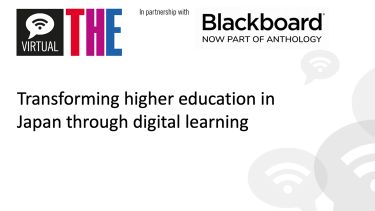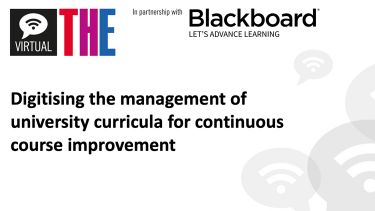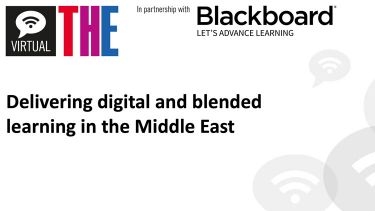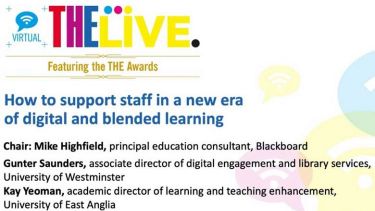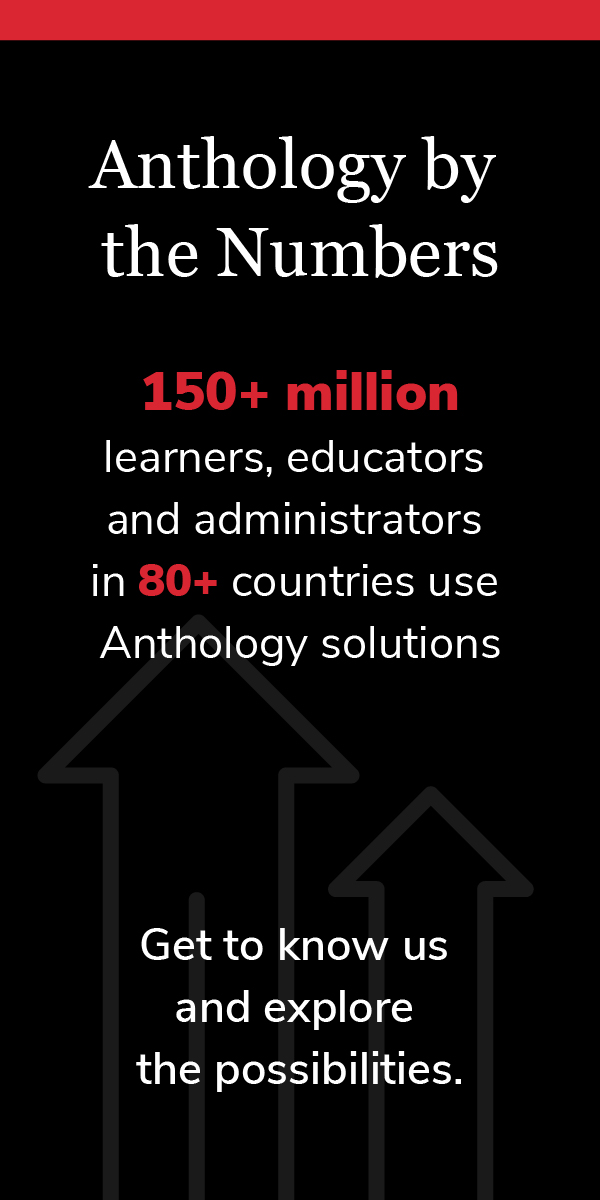Philippines universities have faced challenges during the pandemic, but many are adapting through a flexible and open approach to course design and learning
For higher education institutions in the Philippines, the pandemic provided a chance to review their digital learning provision. Most had some level of online learning available already, but enforced lockdowns meant it quickly became apparent where the challenges – and opportunities – of remote learning delivery lay.
Speaking at a Times Higher Education panel in partnership with Blackboard, Bert Tuga, president of Philippine Normal University (PNU), said that flexible learning had “moved the boundaries”. “We can now have a diverse range of students from all over the country and can flex our human resources where we may not have the staff numbers or specialist expertise,” Dr Tuga said. “PNU can become a virtual university accessible from across the globe and affordable to more people.”
One of the key challenges for Philippines institutions is the lack of internet connectivity or access to devices faced by many students. Whereas global institutions reacted to the pandemic by shifting courses to synchronous online delivery, universities in the Philippines have had to be more creative.
Rosana Mula from the government’s Agricultural Training Institute said: “We offer a blended mode of online and face-to-face, so digital learning resources can be accessed offline too. This means more and more students, even in coastal areas, can access resources, download them and study in their own time.”
Nicole Wall, senior director of global client experience at Blackboard, added that many institutions had adapted to ensure access to learning was equitable for all. “Universities have developed self-paced learning online so that students can choose where to learn from and on what device,” she said.
Sukarno Tanggol, chancellor of Mindanao State University-Iligan Institute of Technology, described how the institution had set up a flexible learning committee chaired by its vice-chancellor for academic affairs. As a government school, one of the challenges of widening access was the limits on student numbers imposed by the state. “We have about 30 per cent online modality and we pushed for fully online during the pandemic, but connectivity was an issue for some,” he said. “We have a feedback mechanism in place where we can adjust methodologies and we have been adapting our systems.”
Developing more flexible learning approaches has also meant a re-evaluation of course design. Melinda Bandalaria, chancellor of the University of the Philippines Open University, argued that this would help to open up lifelong learning to more people. “We are referred to as the ‘second chance university’ because we give people a chance who were not able to be part of the traditional education system,” she said. “Flexibility means different modalities that can answer different learning needs and, as universities, we need to be more decisive as to how we design this type of learning.” Massive open online courses, microcredentials and nano-degrees could all form part of a more student- and employer-led offering, she added.
Partnerships with industry will be central to designing flexible and accessible courses that build skills for the fourth industrial revolution. Bonifacio Gabales, vice-president for academic affairs at the University of Southeastern Philippines, said one of the challenges for state universities was ensuring that course guidelines were approved, but that links with industry helped match and map competencies for students. He concluded: “Industry partners can share their thoughts on the skills they need, what the jobs are and the skills required. Partnership and networking is crucial.”
The panel:
- Melinda Bandalaria, chancellor, University of the Philippines Open University
- Bonifacio Gabales, vice-president for academic affairs, University of Southeastern Philippines
- Rosana Mula, deputy director, the Agricultural Training Institute
- Sukarno Tanggol, chancellor, Mindanao State University-Iligan Institute of Technology
- Bert Tuga, president, Philippine Normal University
- Nicole Wall, director of global client experience and professional services, Blackboard
- Ashton Wenborn, special projects deputy editor, Times Higher Education (chair)
Watch the roundtable on demand above or on the THE Connect YouTube channel.
Find out more about Blackboard and higher education.





